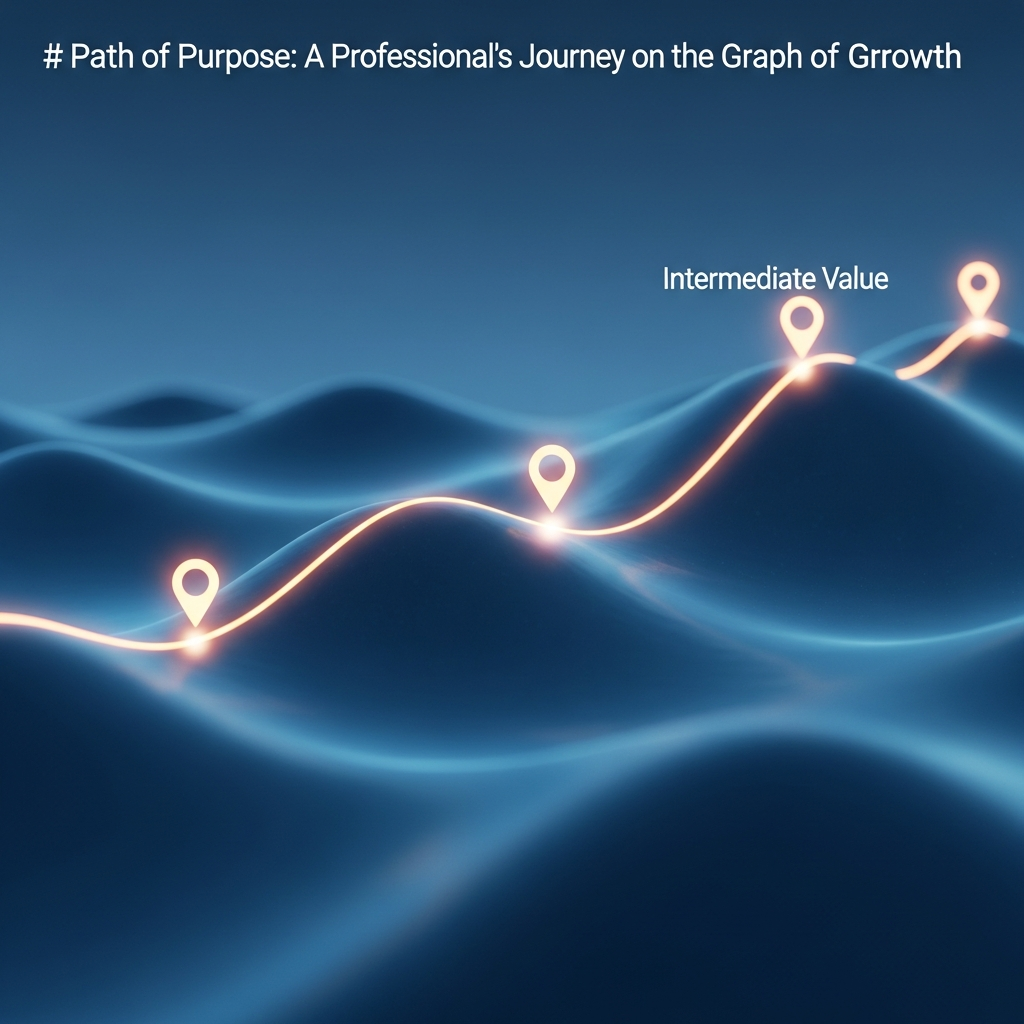Have you ever felt stuck, circling a personal or professional goal without quite breaking free? This feeling is like being caught in gravity’s pull. In physics, “escape velocity” is the speed an object needs to permanently overcome a celestial body’s gravitational force. Metaphorically, achieving escape velocity in life means gathering enough momentum, skill, and strategic insight to break free from limitations and launch towards your highest potential. This journey isn’t solely about brute force. It’s a complex interplay of inherent traits, cultivated abilities, careful planning, and sometimes, a little bit of chance.
This article explores the fundamental forces that help us achieve breakthroughs. We will delve into the profound impact of nature versus nurture, the vital role of strategic thinking (drawing insights from chess), the relentless pursuit of skill development, and even the often-underestimated influence of luck. Understanding these dynamics is crucial. It empowers you to navigate challenges, seize opportunities, and ultimately, elevate your trajectory.
Defining Your Personal Escape Velocity
Every individual has unique aspirations, whether it’s mastering a new career, launching a creative project, or simply improving personal well-being. Identifying your personal “gravitational pull” – the habits, mindsets, or external factors holding you back – is the first step. True escape velocity in life isn’t just about reaching a goal; it’s about sustaining that momentum. It means creating self-reinforcing loops of progress and learning. It requires a significant and sustained effort to overcome inertia.
Understanding what drives you forward and what pulls you back is fundamental. This metaphorical journey demands introspection and a clear vision. Without knowing your destination, any amount of speed is meaningless. Define your targets. Then, begin to assess the resources at your disposal.
Nature vs. Nurture: The Foundation of Potential
The age-old debate of nature versus nurture provides critical context for personal development. Are we primarily products of our genes, or do our experiences shape us? The truth, as often is the case, lies in a sophisticated interaction between both. Both innate predisposition and environmental influence are powerful.
The Role of Innate Talents (Nature)
Nature encompasses the genetic predispositions and inherent traits we are born with. Some individuals might naturally possess a sharper memory, greater analytical ability, or a specific physical aptitude. These are raw talents, like unrefined ore. They provide a starting point, a potential advantage in certain fields. However, raw talent alone is rarely enough for sustained success. Consider a naturally gifted musician. Their inherent rhythm or ear for music provides a strong foundation. Yet, without countless hours of practice, their potential remains untapped.
Acknowledging natural strengths is important. It helps guide us towards areas where we might find greater ease or enjoyment. This insight can make the journey feel more aligned. Ignoring innate predispositions entirely can lead to unnecessary struggles.
Cultivating Mastery Through Nurture
Nurture refers to the environmental influences, education, training, and experiences that shape us. It is the deliberate effort we apply to develop skills. This includes formal schooling, mentorship, self-study, and consistent practice. Nurture is where the raw ore of nature is forged into valuable tools. Even someone without exceptional innate talent can achieve remarkable levels of mastery through dedicated nurture. This is often seen in fields like chess or competitive programming, where consistent, deliberate practice outweighs initial gifts.
The impact of nurture is profound. It demonstrates that growth is always possible. We are not simply defined by our starting points. Our environment and choices play a huge role in shaping who we become. This understanding is key to developing a growth mindset.
Strategy: The Blueprint for Ascent
Strategy is the art of planning and directing a complex operation, especially one involving skill and foresight. It’s the “how” of achieving your life’s escape velocity. Without a robust strategy, even immense skill can be misdirected or wasted. Chess, a game of pure strategy, offers invaluable lessons for life.
Learning from Chess: Anticipation and Planning
In chess, every move must be a strategic decision. Players anticipate their opponent’s responses. They plan several steps ahead, weighing risks and rewards. This foresight is crucial for success. Applied to life, this means not just reacting to circumstances but proactively shaping them. What are the potential obstacles? What resources do you need? What are the alternative paths if your initial plan hits a snag? Thinking like a chess master involves visualizing future states.
A strong strategy considers multiple variables. It maps out contingency plans. This kind of thinking builds resilience into your pursuits. It transforms reactive responses into proactive measures.
Strategic Thinking in Everyday Life
Strategic thinking extends far beyond the chessboard. It applies to career planning, financial management, relationship building, and personal projects. It involves setting clear, achievable goals. It requires allocating resources effectively and adapting your approach as circumstances change. For instance, a career strategy might involve identifying key skills, seeking mentors, and networking intentionally. It’s about making deliberate choices that serve your long-term objectives.
Developing this mindset means stepping back from immediate tasks. It means assessing the broader landscape. Strategic thinking allows you to see the forest, not just the trees. This perspective provides clarity and direction.
Skill: The Engine of Progress
While strategy provides the map, skill is the vehicle that moves you along the path. Skill development is the continuous process of improving your abilities through practice and learning. It’s the engine generating the necessary thrust for escape velocity in life. Without honed skills, even the best strategy remains theoretical.
Deliberate Practice and Expertise
Achieving true expertise demands more than just repetition. It requires deliberate practice. This involves focused, intentional effort on specific areas for improvement. It means pushing beyond your comfort zone, seeking immediate feedback, and refining techniques. For example, a writer doesn’t just write; they practice different genres, study effective prose, and accept critical edits. This structured approach accelerates learning. It transforms effort into genuine ability.
The journey to skill mastery is iterative. It involves consistent evaluation and adjustment. Each small improvement adds to your overall capability. This cumulative growth builds significant momentum.
Adaptability: A Crucial Skill
The world is constantly changing. Therefore, adaptability itself becomes a critical skill. The ability to learn new skills, unlearn old habits, and adjust strategies in response to new information is paramount. Those who can pivot quickly and embrace change are better equipped to navigate unpredictable environments. This means cultivating intellectual curiosity and a willingness to step outside comfort zones. Adaptability ensures your skills remain relevant.
Staying agile prevents stagnation. It allows you to leverage emerging opportunities. This constant evolution is a hallmark of those who consistently achieve their goals.
Luck: The Unpredictable Variable
Luck is often the wildcard in the equation of success. It’s the element beyond our direct control, the serendipitous encounter, or the unforeseen obstacle. While we cannot command luck, we can position ourselves to better receive good fortune and mitigate the effects of bad. This understanding is crucial for a balanced perspective on success.
Recognizing and Capitalizing on Serendipity
Good luck often appears to those who are prepared and observant. Being open to new experiences, networking widely, and taking calculated risks can increase your exposure to fortunate opportunities. It’s not just about waiting for luck to strike. It’s about creating a fertile ground for it. A chance meeting might lead to a significant breakthrough. A sudden market shift might open a new business avenue. Recognizing these moments and acting on them is key.
Cultivating a mindset of openness and curiosity can turn random occurrences into beneficial outcomes. This active engagement with the world increases your chances of encountering serendipity.
Mitigating the Impact of Bad Luck
Conversely, bad luck can derail even the most meticulously planned efforts. Developing resilience, having contingency plans, and building strong support systems can help absorb these shocks. Just as a good strategy anticipates challenges, having a plan for potential setbacks reduces their impact. It’s about building a robust system that can weather storms. This might involve financial reserves, alternative career paths, or strong social connections.
Resilience isn’t just bouncing back. It’s about learning from adversity. It’s about growing stronger through challenges. This perspective transforms setbacks into learning opportunities.
Synthesizing Success: A Holistic Approach
Achieving escape velocity in life isn’t about isolating these factors. It’s about their synergistic interaction. Innate talents (nature) provide a foundation. Dedicated development (nurture) hones those talents into powerful skills. A well-crafted strategy guides the application of those skills. And an awareness of luck allows you to seize opportunities and navigate setbacks. It’s a holistic ecosystem.
This journey demands continuous effort. It requires a commitment to lifelong learning and adaptability. No single element guarantees success, but their intelligent combination creates an unstoppable force. Embrace the complexity. Understand that true progress comes from integrating all these powerful forces effectively. This unified approach maximizes your potential for sustained achievement.
Frequently Asked Questions
What is metaphorical escape velocity in life, and why is it important?
Metaphorical escape velocity in life refers to the point where an individual generates enough momentum, skill, and strategic insight to break free from limitations, overcome stagnation, and consistently achieve higher levels of personal or professional success. It’s important because it represents moving beyond persistent challenges, launching towards new potentials, and sustaining progress rather than repeatedly falling back into old patterns. Achieving this state allows for continuous growth and the realization of ambitious goals.
How can I start applying strategic thinking to my personal goals effectively?
To apply strategic thinking to personal goals, begin by clearly defining your long-term objectives, much like a chess player plans several moves ahead. Break down large goals into smaller, actionable steps. Identify potential obstacles and brainstorm contingency plans for each. Regularly review your progress, adjust your approach based on new information or unexpected challenges, and allocate your time and resources intentionally. Seeking feedback from mentors or peers can also provide valuable strategic insights, helping you refine your path.
Should I prioritize skill development or focus on identifying opportunities for personal growth?
Ideally, you should prioritize both skill development and opportunity identification, as they are mutually reinforcing for achieving escape velocity in life. Developing robust skills provides the capability to seize and maximize opportunities when they arise, making you a more attractive candidate for new ventures. Simultaneously, actively seeking out and recognizing opportunities can provide direction for which skills to prioritize developing, ensuring your efforts are relevant and impactful. A balanced approach ensures you are both prepared for and aware of potential advancements.
Conclusion
The journey to achieve escape velocity in life is a profound testament to human potential. It involves understanding the intricate dance between what we are given by nature and what we cultivate through nurture. It demands the strategic foresight exemplified by chess masters and the tireless dedication to skill development. While luck remains an unpredictable factor, our preparedness and resilience determine its ultimate impact. By consciously integrating these elements – innate abilities, learned skills, strategic planning, and an awareness of chance – you empower yourself to break free from gravitational pulls. Start today by identifying your goals, honing your craft, and strategically charting your course. Your breakthrough awaits.




